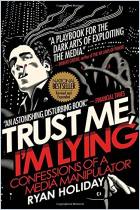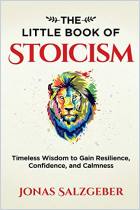Únase a getAbstract para acceder al resumen.

Únase a getAbstract para acceder al resumen.
Ryan Holiday
The Obstacle Is the Way
The Timeless Art of Turning Trials into Triumph
Portfolio, 2014
¿De qué se trata?
Embrace the powerful philosophy of Stoicism to turn any obstacle to your advantage.
Recommendation
Through the ages, people have relied on the philosophy of Stoicism to conquer their difficulties. In addition to ancient Greeks and Romans, proponents included Frederick the Great, Michel de Montaigne, Thomas Jefferson, George Washington, Adam Smith and Theodore Roosevelt. Every year, former US president Bill Clinton studies the writing of Roman emperor Marcus Aurelius, a well-known Stoic philosopher. Former Chinese leader Wen Jiabao has read Marcus’s immortal Meditations “more than 100 times.” Media strategist Ryan Holiday explains how contemporary people can utilize some venerable Stoic principles to turn obstacles into advantages. His lively, clear prose brings these ancient ideas to modern life. getAbstract recommends his helpful guide to the Stoic path to leaders, entrepreneurs, and anyone facing significant challenges.
Summary
About the Author
Media strategist Ryan Holiday is the former marketing director at American Apparel. His ad campaigns garnered coverage in Advertising Age, The New York Times and Fast Company.






















Comment on this summary
Good read and information. Have added to my favorites list and will refer to this often. May even read the entire book!